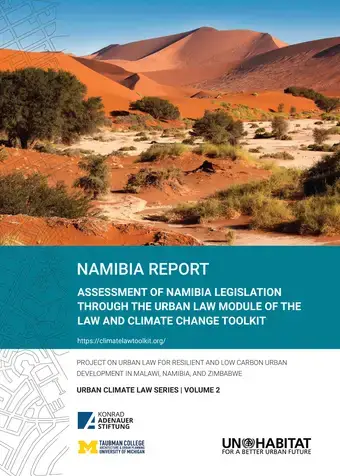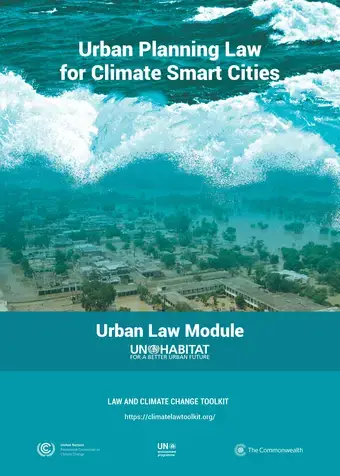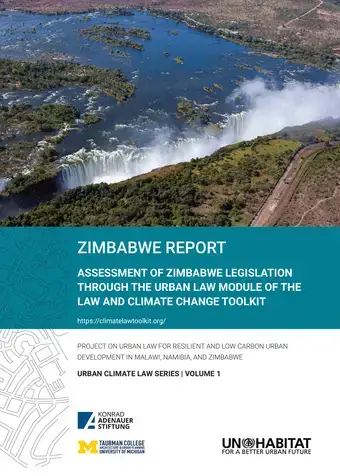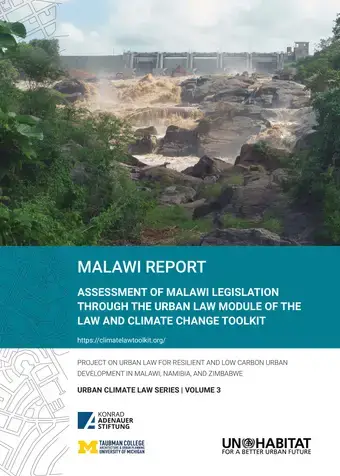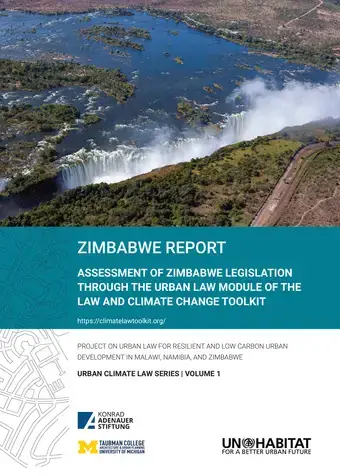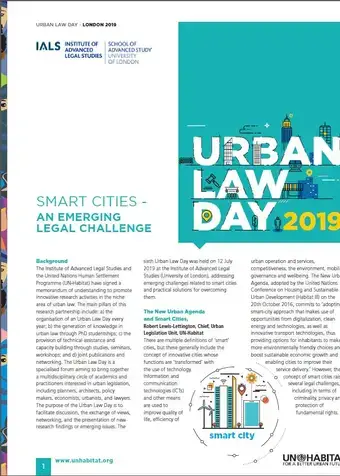 Urbanization is one of the most significant trends of the 21st Century with the global urban population growing from 732 million in 1950 to 4 billion in 2017. This number is expected to nearly double by 2050. The rapid growth of urban areas has increased economic productivity and provided greater opportunities and better quality of life for many.
Urbanization is one of the most significant trends of the 21st Century with the global urban population growing from 732 million in 1950 to 4 billion in 2017. This number is expected to nearly double by 2050. The rapid growth of urban areas has increased economic productivity and provided greater opportunities and better quality of life for many.
Assessment of Zimbabwe Legislation through the Urban Law Module of the Law and Climate Change Toolkit FULL REPORT
Other documents
Related
Assessment of Zimbabwe Legislation through the Urban Law Module of the Law and Climate Change Toolkit SUMMARY REPORT
Related
Urban Law Day 2018
The role of urban law in the New Urban Agenda - Thomas Coggin
This lecture will introduce listeners to the role of law (including legislation, rights, and jurisprudence) in influencing our lives in cities, focusing primarily on its benefits, but also how it can marginalize people.
MP3
AUDIO: Thomas Coggin - The role of urban law in the New Urban Agenda
